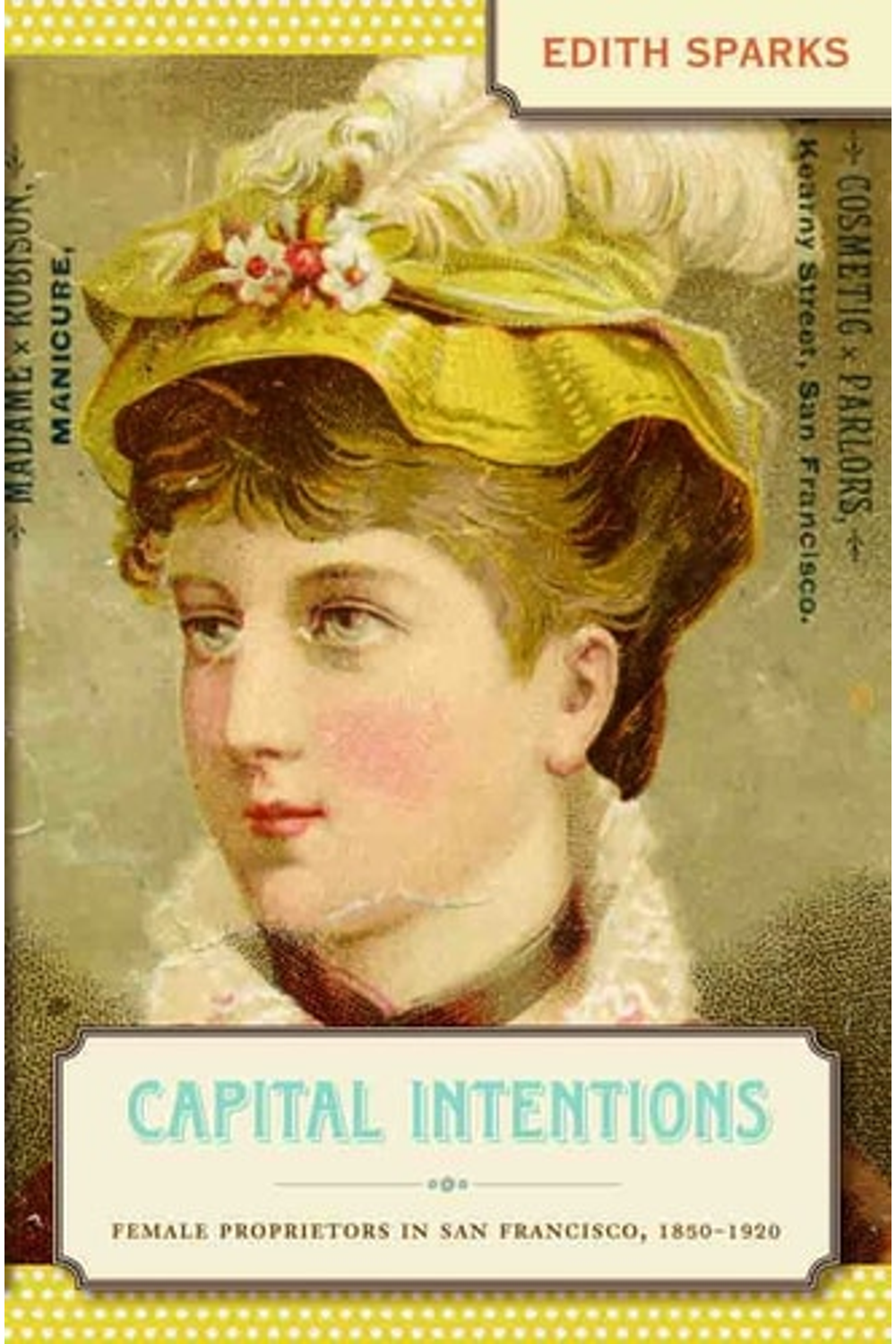Uncover the forgotten stories of San Francisco’s pioneering female entrepreneurs with Edith Sparks’s “Capital Intentions.” This compelling book reveals how women defied 19th-century societal norms to build businesses amidst the Gold Rush boom and beyond. Sparks uses meticulously researched bankruptcy records, city directories, and more to paint a vivid picture of their struggles and successes in a male-dominated world. Explore the diverse businesses they created from laundries to saloons and how they navigated financial hurdles and fierce competition. Discover why their entrepreneurial reign eventually faded with technological advancements and shifting societal expectations. A captivating read for anyone interested in women’s history, California history, and the untold stories of those who shaped San Francisco’s economic landscape. This edition is part of The Luther H. Hodges Jr. and Luther H. Hodges Sr. Series on Business, Entrepreneurship, and Public Policy.
Capital Intentions: Female Proprietors in San Francisco, 1850-1920 (The Luther H. Hodges Jr. and Luther H. Hodges Sr. Series on Business, Entrepreneurship, and Public Policy)
16.76 $
In stock
Late nineteenth-century San Francisco was an ethnically diverse but male-dominated society bustling from a rowdy gold rush, earthquakes, and explosive economic growth. Within this booming marketplace, some women stepped beyond their roles as wives, caregivers, and homemakers to start businesses that combined family concerns with money-making activities. Edith Sparks traces the experiences of these women entrepreneurs, exploring who they were, why they started businesses, how they attracted customers and managed finances, and how they dealt with failure.
Using a unique sample of bankruptcy records, credit reports, advertisements, city directories, census reports, and other sources, Sparks argues that women were competitive, economic actors, strategizing how best to capitalize on their skills in the marketplace. Their boardinghouses, restaurants, saloons, beauty shops, laundries, and clothing stores dotted the city’s landscape. By the early twentieth century, however, technological advances, new preferences for name-brand goods, and competition from large-scale retailers constricted opportunities for women entrepreneurs at the same time that new opportunities for women with families drew them into other occupations. Sparks’s analysis demonstrates that these businesswomen were intimately tied to the fortunes of the city over its first seventy years.
| Authors | |
|---|---|
| Binding | |
| Condition | |
| ISBN-10 | 0807830615 |
| ISBN-13 | 9780807830611 |
| Language | |
| Pages | 352 |
| Publisher | |
| Year published | |
| Weight | 645 |
| Edition | New edition |
| Dewey decimal | 338.7082/0979461 |
Related products
-
It Ends With Us
14.80 $ -
It Ends With Us
15.53 $ -
It Ends With Us
15.30 $
- Additional information
- Currencies
- USD – United States dollar
- EUR – Euro
- GBP – Pound sterling
- CNY – Chinese yuan
- BRL – Brazilian real
- MXN – Mexican peso
- JPY – Japanese yen
- PHP – Philippine peso
- THB – Thai baht
- PLN – Polish złoty
- CAD – Canadian dollar
- MYR – Malaysian ringgit
- AUD – Australian dollar
- TWD – New Taiwan dollar
- CZK – Czech koruna
- SEK – Swedish krona
- HUF – Hungarian forint
- ILS – Israeli new shekel
- CHF – Swiss franc
- HKD – Hong Kong dollar
- DKK – Danish krone
- SGD – Singapore dollar
- NOK – Norwegian krone
- NZD – New Zealand dollar





